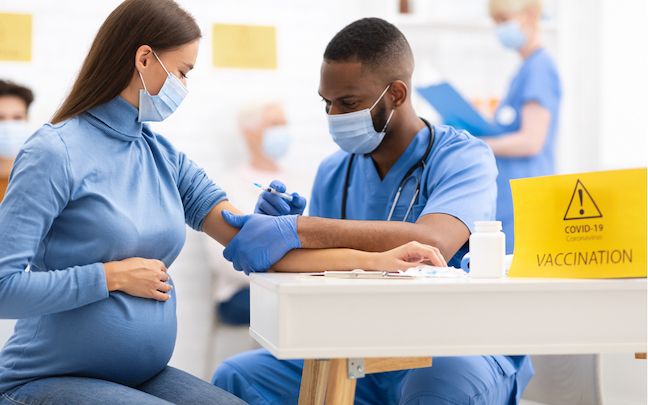Are COVID-19 Vaccines Safe For Pregnant Women?
There are currently two mRNA COVID-19 vaccines that were granted FDA emergency use authorization. The Johnson & Johnson (J&J)/Janssen COVID-19 vaccine before or during pregnancy found no safety concerns as well. While pregnant and breastfeeding women were not part of vaccine clinical trials, many experts believe vaccines are safe for these groups and outweigh the risks of getting sick from COVID-19. In some states, pregnant women may be eligible for vaccination due to the increased risk of COVID-19 complications.
We interviewed the following experts in women’s health to provide insights on safety data regarding the COVID-19 vaccine and pregnancy:
Felice Gersh, M.D. is an award-winning OB/GYN specializing in all aspects of women’s health, and founder/director of the Integrative Medical Group of Irvine, in Irvine, CA. Her practice provides comprehensive healthcare for women, combining the best evidence-based therapies from conventional, naturopathic, and holistic medicine.
Lorrie Harris-Sagaribay, MPH, is the Program Coordinator and an information specialist at MotherToBaby North Carolina. She provides exposure counseling in English and Spanish by phone, email, and online chat. Lorrie serves as a member of the Emerging Issues Task Force, which currently focuses on responding to the COVID-19 pandemic.
Kirstie Perrotta, MPH, is an information specialist at MotherToBaby California, where she provides counseling by phone and chat. Kirstie serves as a member of the Emerging Issues Task Force, which currently focuses on responding to the COVID-19 pandemic.


Get affordable doctor copay without paying insurance premiums
Join 39,000 people and get Mira, the best alternative to traditional insurance. Enroll and use immediately. Plans start at only $45/mo.
Jacqueline graduated from the University of Virginia in 2021 with a B.A. in Global Public Health and is a current M.D. candidate at the Icahn School of Medicine at Mount Sinai. Jacqueline has been working for Mira since April 2020 and is passionate about the intersection of public health and medical care.
